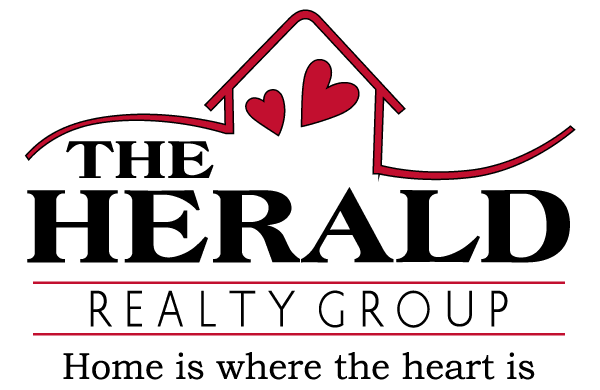Introduction:
For many senior homeowners, a significant portion of their wealth is tied up in their homes. As retirement approaches, leveraging this financial asset to fund a comfortable and fulfilling lifestyle becomes a key consideration. One financial instrument that has gained popularity among senior homeowners is the reverse mortgage, offering a potential source of additional income to supplement retirement savings. At The Herald Realty Group, our Seniors Real Estate Specialist® (SRES®) professionals understand seniors’ unique financial challenges as they transition into their golden years. We are committed to helping homeowners over 50 make informed decisions about their real estate assets and their role in funding their retirement dreams.
In this blog post, we will explore the reverse mortgage process and its implications for senior homeowners. We will provide essential insights and expert advice to help you determine if a reverse mortgage is the right financial solution for your retirement goals. We will begin by discussing the basics of reverse mortgages, outlining how this financial option differs from traditional home loans and highlighting the eligibility requirements for homeowners considering this strategic retirement funding solution.
Next, we will delve into the various types of reverse mortgage products available to senior homeowners, explaining their unique features, benefits, and potential drawbacks to help you identify the right option for your specific financial needs and retirement objectives. Additionally, we will address potential pitfalls and misconceptions surrounding reverse mortgages, offering guidance on how to avoid common mistakes and ensure a successful reverse mortgage experience.
Finally, we will discuss the role of an SRES® professional in navigating the reverse mortgage process, highlighting how their expertise can provide invaluable support as you evaluate this financial option and determine the best course of action to achieve your retirement dreams. Let’s get started.
Understanding the Basics of Reverse Mortgages
To fully grasp the concept of reverse mortgages, it’s essential to understand how they differ from traditional home loans and the eligibility requirements for homeowners:
- Reverse Mortgages vs. Traditional Home Loans: While traditional mortgages involve monthly payments to pay off the loan amount, reverse mortgages allow homeowners to convert a portion of their home’s equity into loan proceeds, which can be received as a lump sum, monthly payments, or a line of credit. The loan is typically paid back when the homeowner sells the home, moves, or passes away.
- Eligibility Requirements: To qualify for a reverse mortgage, homeowners must be at least 62 years of age, live in the home as their primary residence, have significant equity in the property, and be able to maintain the home and pay property taxes and insurance.
Types of Reverse Mortgage Products
Several types of reverse mortgage products cater to the diverse financial needs and objectives of senior homeowners:
- Home Equity Conversion Mortgages (HECMs): Insured by the Federal Housing Administration (FHA), HECMs are the most common reverse mortgage product in the United States. These loans come with certain consumer protections, such as mandatory counseling and limits on fees, but may also have higher upfront costs.
- Proprietary Reverse Mortgages: Also known as private or jumbo reverse mortgages, private lenders offer these loans and are typically geared towards homeowners with high-value properties. They may provide larger loan amounts but often come with higher fees and interest rates.
- Single-Purpose Reverse Mortgages: Offered by some state and local government agencies, as well as non-profit organizations, single-purpose reverse mortgages limit the use of loan proceeds for a specific purpose, such as home repairs or property taxes. While generally the least expensive option, they may not be available in all areas or suitable for all homeowners.
Pitfalls and Misconceptions Surrounding Reverse Mortgages
Being aware of potential pitfalls and common misconceptions about reverse mortgages can help seniors avoid mistakes and make informed decisions:
- The Bank Owns Your Home: A common misconception is that once a reverse mortgage is taken out, the bank owns the home. In reality, the homeowner retains ownership and can continue living in the home if the loan’s terms are met.
- Loan Proceeds Affect Government Benefits: Some seniors fear reverse mortgage proceeds will disqualify them from government benefits like Medicare and Social Security. In most cases, this is not true, but it is essential to consult a financial advisor to understand the specifics of your situation.
- Underestimating Costs: While a reverse mortgage can provide financial relief during retirement, the associated fees, interest rates, and ongoing costs, such as property taxes and insurance, should not be overlooked. Factoring in these expenses is crucial in determining if a reverse mortgage is the right financial option.
The Role of SRES® Professionals
Engaging an SRES® professional can provide invaluable support in evaluating and navigating the reverse mortgage process:
- Expert Guidance: SRES® professionals have specialized knowledge of the financial options available to senior homeowners and can provide expert guidance on whether a reverse mortgage is the right choice for your specific needs.
- Referrals and Resources: An SRES® professional can connect you with reputable lenders, financial advisors, and other professionals, facilitating a smooth and successful reverse mortgage experience.
- Ongoing Support: As homeowners’ needs and preferences change, an SRES® professional can offer ongoing assistance and support to ensure their reverse mortgage continues aligning with their financial objectives.
Conclusion
Reverse mortgages can be a valuable financial option for senior homeowners looking to supplement their retirement income. By understanding the nuances of reverse mortgages and partnering with The Herald Realty Group’s Seniors Real Estate Specialist® (SRES®) professionals, seniors can confidently evaluate and pursue this financial solution to support their retirement goals.
Whether you are considering a reverse mortgage or seeking guidance on other financial options, our SRES® professionals are here to help. Contact us today to discuss how we can support your journey toward a secure and fulfilling retirement, leveraging your real estate assets to achieve your financial aspirations.

